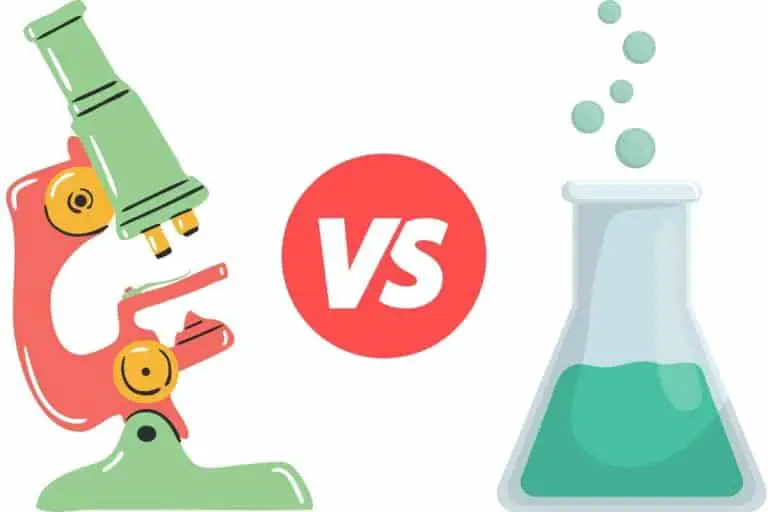AP Chem vs. Honors Chemistry: Similar or Worlds Apart?
Suppose you’re a high school student looking to enter a STEM field or apply to a prestigious college. In that case, you might wonder how to prepare for higher education and increase your chances of getting accepted into your preferred institution. Two such options you’ll be interested in are the chance to take honors and Advanced Placement (AP) courses, both of which provide a more challenging curriculum and look good to colleges on your transcript.
AP Chemistry and Honors Chemistry are similar and more challenging than your average high school class, but there are differences. Honors Chemistry has the same curriculum as standard chemistry, but AP Chemistry focuses on college-level materials and counts towards your higher education degree.
This article will explore:
- The fundamental differences between AP and Honors Chemistry.
- The more specific curriculum differences within chemistry courses themselves.
- Which course type is right for you.

Curriculum Differences Between AP and Honors Chemistry
While both honors and AP chemistry cover introductory concepts, honors chemistry covers more general fundamental aspects of science such as the scientific method, scientific notation, characteristics of matter, and dimensional analysis.
Source: Acellus
AP chemistry assumes you have this background knowledge, and in some cases, honors chemistry will be a prerequisite for AP chemistry. However, this can be waived depending on the student.
AP chemistry moves right into direct chemistry concepts, including chemical reactions, states of matter (gas, liquid, and solid), the structure of matter, chemical calculations, and finally, a lab component.
The AP chemistry exam was redesigned in 2014 and now includes 60 multiple choice questions, three essay questions, and four short answer questions. It is divided into five topics:
- Structure and matter
- States of matter
- Chemical reactions
- Descriptive chemistry
- A small lab component
Source: Wikipedia
Should You Take Honors or AP Chemistry?
If you are planning on attending a public higher ed institution, an honors class will significantly increase your chances of acceptance. A mid-level grade in an honors course will look better than a high mark in a standard course and will also show colleges that you’re willing to work hard.
Chances are, you will need to take honors chemistry to qualify for AP chemistry. With this in mind, you should first decide if an honors class is suitable for you, as honors classes are more intensive than standard classes.
If you find yourself struggling with the workload of a traditional course, you’re probably better off sticking with it. A mid-level grade in a standard course will look better to colleges than a low grade in an honors course.
However, if you find yourself breezing through a standard class’s workload, you might consider taking an honors class, even if you don’t plan on moving on to AP chemistry.
After completing honors chemistry, you will be well equipped to move on to AP. If you aren’t planning on attending a private or prestigious university, you may be better off forgoing an AP course, but it certainly wouldn’t hurt.
AP classes give you a head start by providing you with a small number of college credits, which cuts down on the work you’ll have to do at your institution of choice.
If you plan to go to a private institution for a STEM field, it is highly recommended that you take AP chemistry. Not only will it provide a head start, but it will look desirable to particularly selective schools.
However, note that not all institutes of higher education give credits for AP courses and policies are different in every school.
For example, Harvard University gives you credits if you score 5 on your AP exam, but the University of Pennsylvania and Cornell University also accept 4. Regardless, in almost all cases a high AP score will help you get admission from a top university.
Source: NC Global Education
If you found yourself struggling with the workload of honors chemistry, don’t worry! You may consider skipping AP chemistry, but it will still increase your chances of acceptance.
Honors Courses
Honors courses taken during your high school career can be classified under the same umbrella as they follow the same curriculum as AP courses.
If students get moved from a standard course to an honors course, they might find that an honors course is faster and more intensive. It covers the same subjects in the same order. However, it may extend beyond a standard course’s usual topics.
Both types of courses only earn high school credits and count toward your high school diploma.
The most significant difference between the two is the workload and pace at which work is completed. Tests, exams, and essays also tend to be a bit more challenging.
To take honors courses, you must maintain high marks, and one of your teachers must recommend you for the program.
Source: Cappex: The Difference Between AP and Honors Courses
Advanced Placement (AP) Courses
The Advanced Placement (AP) program was initially developed by the nonprofit organization the College Board.
Since 1955, the College Board’s AP program has allowed students to take courses with college-level curriculums and workloads for college credits that count toward their higher ed degree.
AP classes have a very different, accelerated curriculum that matches the content of a single-semester college course. Additionally, the tests and exams are standardized and take place on specific dates instead of traditional and honors classes.
In a standard course, the instructor creates the tests and plans them according to their lesson plans. AP courses are also typically weighted by one additional point.
Source: CollegeVine
Conclusion
There are many significant differences between advanced placement (AP) and honors chemistry. However, most of these apply to all AP and honors courses.
Both types of courses cover much of the same content. However, AP courses include curricula typically taught to college-level students and provide you with a handful of credits to give you a head start on your higher education journey.
AP and honors classes go more in-depth and have heavier workloads than a standard high school class. If you can handle the additional work, honors and AP courses will significantly boost your chances of acceptance.
Recommended Reading:







